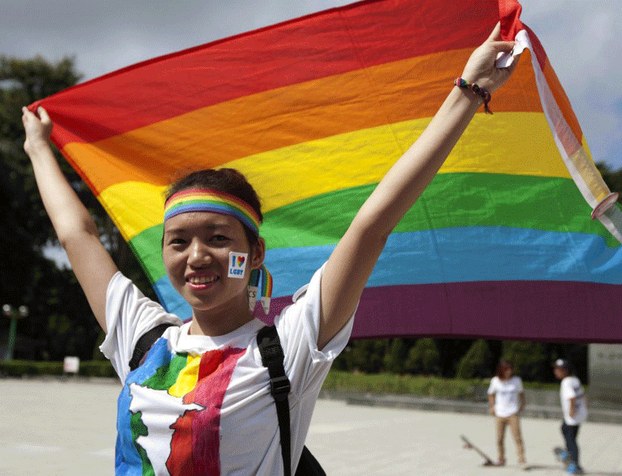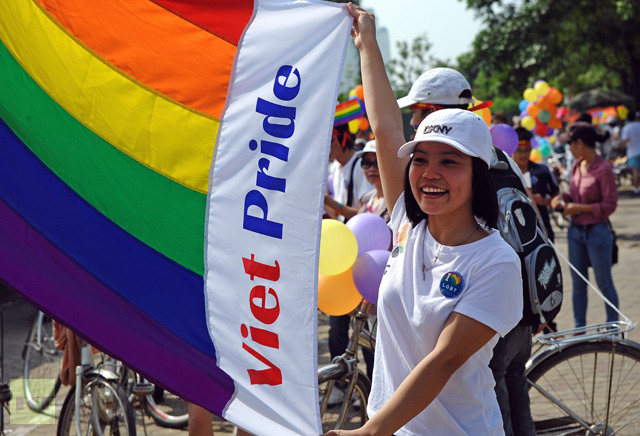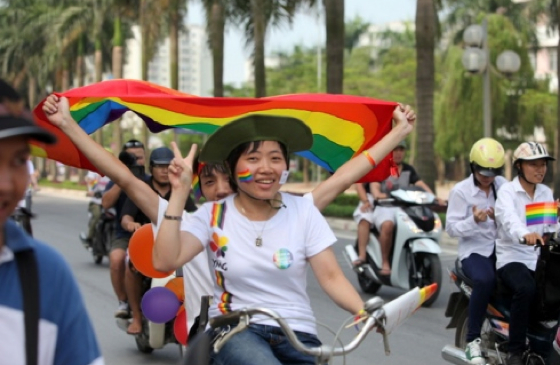Drawing examples from queer-themed Vietnamese films and his own personal experience in Vietnam, writer, scholar, and activist Khanh Ho responds to a student’s question on Vietnamese queer diaspora. This post originally appeared on Khanh Ho’s blog, Los Angeles Mystery.
Have you subscribed to diaCRITICS yet? Subscribe and win prizes! Read more details.
* * *
Hello, I am an Asian American studies major at the University of California, Davis. A couple of classmates and I are writing a research paper on Vietnamese queer diaspora and its different levels of acceptance and how policies are affected by it for a class taught by professor Caroline Valverde. So I was just wondering if I could get your opinion on this topic. What are the differences in levels of queer acceptance in Vietnam and in Vietnamese diasporas? How are these differing sentiments reflected in government policies and in the climate of these queer communities? It would be extremely helpful to get your input on this.
Thank you.
* * *
Dear Miss _____,
Thanks for contacting me with such a thoughtful question. I’m glad to hear that you are taking classes with Professor Valverde; she is an innovative scholar and all-around awesome individual…and I really do wish that I could pull up a plastic chair in the room and listen to the fountain of her mind spill forth its tinkling secrets.
That said, I am no expert on Queer Vietnam.
But coincidentally, I just attended a screening of Vietnamese short films at the YXine Film Festival, hosted at USC. Two of the films addressed the topic of queer Vietnamese issues in Vietnam and they may give you a viewfinder into this world. One was about Vietnamese lesbianism in the city; the other was about Vietnamese gay identity in the countryside. I’ll give you a run-down of the stories in a second.
But first, I have some good news and bad news. Both films appear to document hostile environments in Vietnamese contemporary culture. Whether it’s in the city classroom or the emerald rice paddies of the countryside, Vietnamese gay youth suffer the usual injustices–queer baiting, bashing, bullying, name-calling.
Vietnamese culture often thinks of homosexuality as a Western imposition. The word for homosexual—bede—is a corruption of the French pederaste. During my first trip to Vietnam, straight out of college back in 1993, I remember hearing that word for the first time while walking down the alley with some friends.
Up ahead was a girl.
Bede. Bede. Bede. That’s all my crew said, over and over again. It was a taunt, said quietly under the breath but loud enough to hear in the tenebrous half-light of that dark alley. These were my friends—a bunch of upper middle class kids—and I was traveling with them in a pack. And there was that girl, only a silhouette, and I was realizing that she wasn’t a girl.
Bede. Bede. Bede. It must have been scary and lonely to hear a bunch of low clamoring whispers behind you, like moth wings beating at a light bulb.
“You can always tell a bede. It’s in their shoulders.” But my eyes had not yet begun to grow accustomed to Vietnamese proportions. “Look at that V of her back.” The girl did not dress like drag queens or transvestites in the United States—Rupaul-ish. She was going for what they call “realness”: those earrings, the frumpy calico dress—so un-flashy. Had it not been for those whispers, had it not been for the taunting, which I was very much a part of, she would have remained a girl in my mind’s eye.
No, I had not said a word. But I did not doubt that I was a part of the brooding, male presence behind her. My body had leant its weight to the words that followed her.
I’d like to say things have changed but I’m not sure; I’m not part of the gay scene in Vietnam. But the short films suggest that it’s still oppressive there.
The short about a gay tailor in the countryside is told in everybody else’s voice except his own. The frame for the story—a village ferry—allows us to hear all the rumors circulating around this young man: everybody knows he is gay and there emerge detractors and defenders. Even the defenses, though, are tailored around gay stereotypes:
They’re so good with their hands. There’s a gay guy in the other town who knows how to do my hair.
The central consciousness of the movie—the nephew of the gay man who has been abandoned by his father—hears all this talk. He sits in the middle of the boat with his book bag clutched to his chest. But he is too young, too confused to figure things out. He just wants his uncle to get married, wants him to be normal.
“Why don’t you marry and be normal?” He asks this, naively. The uncle will not marry. He is waiting for an old flame, whose picture is kept locked away in a cabinet we never see.
The woman in the conical hat who runs the ferry—the uncle’s staunchest defender—refuses the kid’s fare. “Tell your uncle that I’ll apply it to a shirt.” She adds, “your uncle makes such nice shirts.” And what she means is gay people are “kheo tay”—good with their hands: precise, mincing, preening
The boy runs away. Conflicted by all the rumors about his Uncle. Motivated by the emptiness of abandonment. He runs off to Saigon. The uncle follows.
The final frame of the movie is like an O. Henry story, with the kind of irony that Vietnamese people love: a handsome young man sits on the ferry, inquiring after the tailor. “He ran after his nephew who left in search of his father and the city has swallowed them both up.” It is only then that we realize that the handsome young man, caught between two shores on a flimsy boat, is the tailor’s old flame—the picture locked in a cabinet—whom he will never know came back for him.
If it sucks to be gay in the countryside, it sucks to be gay in the city. The next movie documents a dawning lesbianism, which emerges in the form of a schoolgirl crush. Vietnamese people—men and women—are extremely touchy-feely.
When I was in Vietnam, it was not uncommon for men—straight men—to hold hands walking down the street.
So the emerging lesbianism in these two young girls seems almost natural in the many ways Vietnamese same-sex interaction unfolds: the necessary embrace on the motorcycle is supposed to be meaningless, isn’t it?
The school is one of those solid structures that makes me nostalgic for colonialism. The French left some good-looking buildings behind. And these kids are the inheritors of all that is both good and bad of the lingering colonial presence; they are the well-to-do of an emerging generation that has smart phones, a generation that never experienced war.
The trick of the film hinges on a moment of intimacy, caught with a camera-phone—a kiss on the ear lobe given by one girl while the other sleeps on the desk. The image is sent to everybody, including the girls (yes, cyberbullying is international!) and the girls become the butt of a joke.
They break up, never having been technically together. The kisser—she becomes a victim of the usual hate: desk graffiti, spitballs, laughter, microaggressions.
But in being ostracized, she finds community. She takes a stab at normalcy and dates a guy who searches her out because, it turns out, he is gay. She gets a rainbow bracelet, passed to her secretly in the hallway by two thuggish looking guys. And then voila: she puts it on and her friend—that girl who is the apple of her eye—slips it on, too.
They end the movie walking hand in hand down the hallway.
So, what do these movies mean about being gay in Vietnam? The short answer: it sucks. Just as it sucks, too, to be a gay Vietnamese person in the United States, where you are not allowed full civic participation in community-building events like the yearly New Years parade (I assume Professor Valverde shared with you my Huffington Post editorial about gays being excluded in the Vietnamese Lunar New Year Parade. If not, here is the link).
But there is a silver lining: even as these movies document the marginal status of gays in the Vietnam, their very act of documentation shows that this condition is changing. That the movies are allowed to be produced, that they have shown up within the context of film festivals means that we are not just walking down a long, dark alley, listening dumbly to the echo of those words—bede bede bede bede bede—but that there is something that we can imagine to be a light at the end of it all: a place where a small path empties out into a boulevard.
I wish you the very best with your studies. And please do send my highest regards to Professor Caroline Kieu-Linh Valverde.
Sincerely,
Khanh Ho
Do you enjoy reading diaCRITICS? Then please consider subscribing!
Please take the time to share this post. Sharing (on email, Facebook, etc.) helps spread the word about diaCRITICS. Join the conversation and leave a comment! Do you think that Vietnamese films exploring queer identity are a positive sign of changing conditions for the queer community or are they mere reflections of the struggles that the community continues to face?
________________________________________________________






